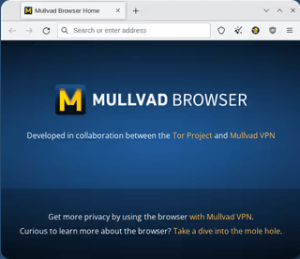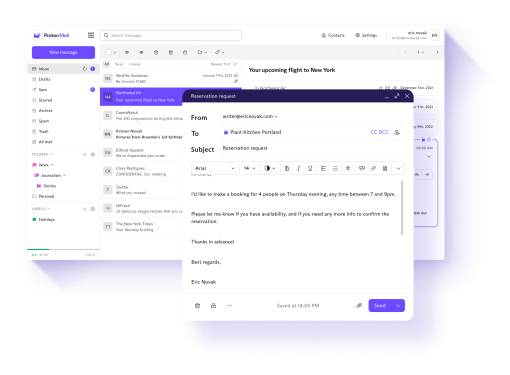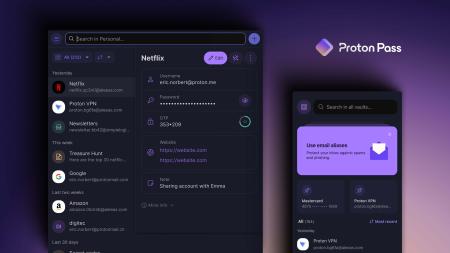
Avoid The Hack: 18 Free and Easy-to-Use Tools to Improve Your Privacy
This post was originally published on 1 SEP 2022; it has since been updated and revised.
One of the biggest sticking points commonly brought up in the privacy community is the price of privacy.
As it generally goes, especially on the internet as a whole, free is not free – however, there are some privacy tools available out there that require little technical know-how and in their most essential functions, are free without substantially hidden costs.
Some privacy tools listed here include “freemium” tools, but the tools listed here provide generous benefits and features. In most cases, this is made possible because the free versions are subsidized by the paying users, which is "freemium" done right.
Private Search Engines
Started circa 2006, Startpage proxies Google results. In other words, you send your search query through Startpage, Startpage strips the query of identifying metadata and forwards the query to Google.
The results are ultimately served by Startpage so there is no redirecting involved. Startpage also has an Anonymous View feature, that can allow you to “preview” websites found in the results prior to your browser establishing a connection with the website.
Mojeek is a private search engine with its own independent index and crawlers. Mojeek operates in the UK.
One of the beautiful things about Mojeek is how unique the results are in comparison to those fetched by Bing or Google or any of the search engines that proxy/query these indexes.
In March 2021, Brave Software acquired Tailcat, which was an independent search engine developed. Brave then announced the launching of its own private search engine, Brave Search.
As of August 2023, Brave Search claims its results are 100% independent and pulled from its own index, an upgrade from its previous Brave Search partially independent index where it regularly used fallback mixing from Bing and Google.
Brave Search has a number of feature making it easy to search for answers to questions that may be found on social media (no more "how to turn off my PC reddit!") Brave Search is the default search engine for the Brave browser.
If you are looking for more search engine suggestions, then check out avoidthehack's recommended private search engines.
Privacy-Oriented Browsers
Firefox has been around for a long time. Users will find it a common recommendation in the privacy community as it’s open source and has many built-in privacy features like cookie containers and by default is resistant to some trackers.
It has also spawned tons of forks from its Gecko-based source code, such as Librewolf and Waterfox, that have a default privacy-friendly focus.
To get the most privacy and security protection from Firefox, it’s highly recommended to “harden” it. Feel free to follow the avoidthehack guide for configuring Firefox for privacy.
The Brave browser aims to be a drop-in privacy-friendly replacement for Google Chrome. The biggest draw to Brave it’s considered easy privacy out-of-the-box.
Brave is a fork of the Chromium project. Many of the back-end requests Chromium makes to Google are instead replaced by “Brave services” or proxied through Brave’s servers. It has a built-in adblocker that works pretty well; it’s been reviewed here on avoidthehack in another post. It can also handle most extensions found in the Chrome Web Store.
Librewolf is a fork of Firefox focused on privacy, security, and user freedom. Librewolf comes with most options in the Firefox Privacy Config (and the arkenfox user.js) enabled (or disabled, as appropriate) by default. In other words, it is an already tweaked for privacy version of Firefox.
Librewolf does not have telemetry by default, includes private search provider options, and has uBlock Origin installed out-of-the-box.
Tor, The Onion Router, is a hardened version of Firefox configured to run on the Tor network. Tor sends your browsing traffic through a worldwide relay so that your traffic isn’t traceable back to you. .onion addresses can only be accessed via the Tor browser.
Tor is an excellent choice for those seeking anonymity or circumventing censorship.
The Mullvad Browser is a fork of the Tor browser, designed for use without the Tor Network. Instead, the Mullvad Browser can be used with a trusted VPN provider.
The Mullvad Browser disables telemetry by default, has anti-fingerprinting features, and has uBlock Origin (an open-source tracker blocker) installed by default.
If you are looking for more privacy-oriented browser suggestions for all platforms, then check out avoidthehack's recommended privacy browsers.
Adblockers
uBlock Origin is the gold standard for blocking ads and trackers in the browser. In most cases, uBlock Origin is the only adblocking add-on/extension needed for comprehensive adblocking.
uBlock Origin can be fine tuned via settings and other features, such as blocking JavaScript, disabling the loading of remote fonts, and its handy element zapper function.
AdGuard is a solid open source solution for delivering adblocking capabilities to mobile devices. It also works on Windows desktops.
The basic version of AdGuard is free and provides great adblocking on whatever device it’s installed on. On iOS, most of the blocking occurs in Safari.
The paid version of AdGuard features more advanced blocking capabilities. If you’re considering purchasing an AdGuard license, then consider using our affiliate link at no additional cost to you.
More information about blocking ads and trackers can be found in the avoidthehack guide, How to Block Ads.
Application Firewalls
Portmaster is a free, open-source, and easy to use application firewall. Portmaster allows users to easily block ads and trackers across Windows and Linux-based computers; as a host-based firewall, it also gives the user superior control over the network connections made by the device.
Portmaster’s GUI is sleek, easy to navigate, and easy to use even for more novice users. Users can block an application’s network connections with a toggle, monitor all network activity on the device, and set both global and per-app settings. Portmaster secures the device’s DNS requests by default, forwarding DNS queries to an encrypted DNS provider of the user’s choice.
Secure Messengers
Signal is a well-known and widely used centralized messaging alternative to WhatsApp. It has a focus on user privacy, unlike WhatsApp and can function as a direct drop-in replacement for WhatsApp users.
Signal sends sends very minimal metadata and securely routes messages though its servers via its highly respected and security audited Signal Protocol. Signal supports peer-to-peer voice and video calls.
Signal requires a phone number for account creation, but this phone number can be a VoIP number not associated with a SIM card.
Session is a highly private decentralized messenger using the Oxen Service Node Network to route messages. Session does not require any potentially unique identifiers for sign-up; instead, accounts are created using a unique SessionID.
Session supports group chats, voice messages, and sending file attachments. All comunications are encrypted and the network has zero knowledge of your communications. Metadata leakage is not much of a concern due to Session’s security audited Session protocol.
If you are looking for more information on encrypted and secure messengers that respect your privacy, then check out avoidthehack's recommended secure, encrypted, and private messaging platforms.
Encrypted Email
ProtonMail, provided by the rebranded Proton.me, is a Switzerland-based encrypted email provider focusing on ease of use, privacy, and security for the user. Email data stored on ProtonMail’s servers uses zero knowledge encryption. ProtonMail has implemented OpenPGP encryption and allows users to send OpenPGP encrypted emails to others without a ProtonMail address.
The free version of ProtonMail provides:
- 1 email address
- 3 folders/labels
- Sending up to 150 emails per day
- Up to 1 Gigabyte (GB) of storage
If you are considering upgrading to a paid plan with Proton, then consider using the affiliate link at no additional cost to you.
Tutanota is a Germany-based email provider focusing on user privacy and security. Tutanota uses zero-knowledge encryption to protect email data at rest.
Tutanota does not support OpenPGP encryption or the use of third-party mail clients outside of the official Tutanota client.
The free version is available for private use. The free version of Tutanota provides:
- 1 email address at a Tutanota domain
- Up to 1 GB of storage
- Limited search
- A single calendar
If you are looking for more secure and private email providers, then check out avoidthehack's recommended email private and secure providers.
VPNs
ProtonVPN is another service provided by Proton.me and is a highly trusted VPN provider with an audited no-logs policy.
ProtonVPN’s free tier allows connections to a limited number of servers in limited regions and allows users to enjoy modest speeds. The free tier upholds ProtonVPN’s audited no-log policy as the free tier is subsidized by the paying users of the service.
If you are considering upgrading to a pain plan with Proton, then consider using our affiliate link at no additional cost to you.
For more privacy-friendly VPN providers, check out avoidthehack's recommended VPN providers.
Password Managers
Bitwarden is an open-source password manager. It can either be self-hosted or used in a more traditional software-as-a-service (SaaS), Bitwarden Cloud.
More average users may wish to opt for Bitwarden Cloud, which can function as a direct drop-in replacement for other cloud-based password managers such as 1Password, LastPass, and Dashlane.
Bitwarden uses zero-knowledge encryption and allows users total control over their data.
Proton Pass is an open-source password manager and is part of Proton's suite of privacy-friendly products and services, such as Proton Mail.
Proton Pass is a cloud-based password manager and can function as a drop-in replacement for other cloud-based password managers such as 1Password, LastPass, and Dashlane.
If you are looking for more password manager suggestions, then check out avoidthehack's recommended password managers.
Final thoughts
While the old internet saying of “if it’s free, then you’re the product,” holds true in many case, it’s important to understand that is does not always have to be the case.
The tools provided in this post are trusted to provide increased security and privacy for the end users. Privacy doesn’t have to be expensive!
With that said, stay safe out there!

















